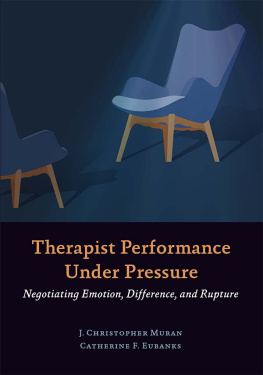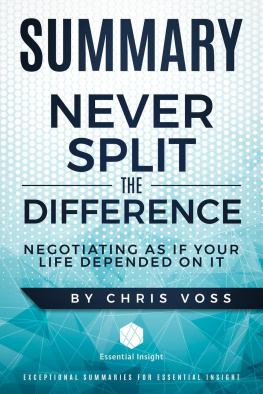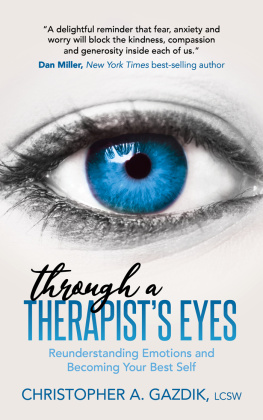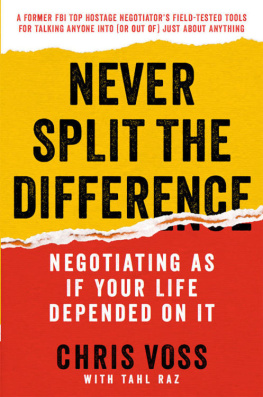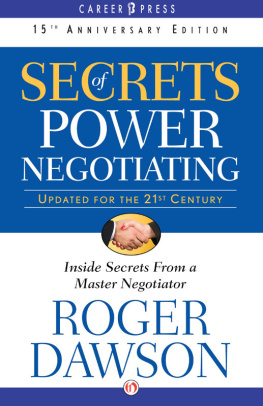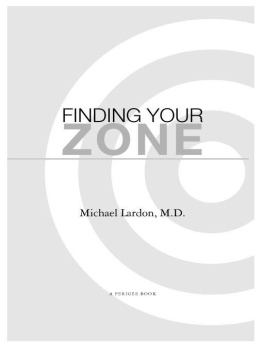J. Christopher Muran - Therapist performance under pressure negotiating emotions, difference, and rupture
Here you can read online J. Christopher Muran - Therapist performance under pressure negotiating emotions, difference, and rupture full text of the book (entire story) in english for free. Download pdf and epub, get meaning, cover and reviews about this ebook. year: 2020, genre: Home and family. Description of the work, (preface) as well as reviews are available. Best literature library LitArk.com created for fans of good reading and offers a wide selection of genres:
Romance novel
Science fiction
Adventure
Detective
Science
History
Home and family
Prose
Art
Politics
Computer
Non-fiction
Religion
Business
Children
Humor
Choose a favorite category and find really read worthwhile books. Enjoy immersion in the world of imagination, feel the emotions of the characters or learn something new for yourself, make an fascinating discovery.
- Book:Therapist performance under pressure negotiating emotions, difference, and rupture
- Author:
- Genre:
- Year:2020
- Rating:4 / 5
- Favourites:Add to favourites
- Your mark:
- 80
- 1
- 2
- 3
- 4
- 5
Therapist performance under pressure negotiating emotions, difference, and rupture: summary, description and annotation
We offer to read an annotation, description, summary or preface (depends on what the author of the book "Therapist performance under pressure negotiating emotions, difference, and rupture" wrote himself). If you haven't found the necessary information about the book — write in the comments, we will try to find it.
Therapist performance under pressure negotiating emotions, difference, and rupture — read online for free the complete book (whole text) full work
Below is the text of the book, divided by pages. System saving the place of the last page read, allows you to conveniently read the book "Therapist performance under pressure negotiating emotions, difference, and rupture" online for free, without having to search again every time where you left off. Put a bookmark, and you can go to the page where you finished reading at any time.
Font size:
Interval:
Bookmark:


Copyright 2020 by the American Psychological Association. All rights reserved. Except as permitted under the United States Copyright Act of 1976, no part of this publication may be reproduced or distributed in any form or by any means, including, but not limited to, the process of scanning and digitization, or stored in a database or retrieval system, without the prior written permission of the publisher.
Electronic edition published 2020.
ISBN: 978-1-4338-3192-8 (electronic edition).
The opinions and statements published are the responsibility of the authors, and such opinions and statements do not necessarily represent the policies of the American Psychological Association.
Published by
American Psychological Association
750 First Street, NE
Washington, DC 20002
https://www.apa.org
Order Department
https://www.apa.org/pubs/books
In the U.K., Europe, Africa, and the Middle East, copies may be ordered from Eurospan
https://www.eurospanbookstore.com/apa
Cover Designer: Beth Schlenoff, Bethesda, MD
Library of Congress Cataloging-in-Publication Data
Names: Muran, J. Christopher, author. | Eubanks, Catherine F., author. | American Psychological Association, issuing body.
Title: Therapist performance under pressure : negotiating emotion, difference, and rupture / J. Christopher Muran and Catherine F. Eubanks.
Description: Washington, DC : American Psychological Association, [2020] | Includes bibliographical references.
Identifiers: LCCN 2019050268 (print) | LCCN 2019050269 (ebook) | ISBN 9781433831911 (paperback) | ISBN 9781433831928 (ebook)
Subjects: MESH: Psychotherapeutic Processes | Psychotherapymethods | Professional-Patient Relations | Emotions
Classification: LCC RC480.5 (print) | LCC RC480.5 (ebook) | NLM WM 420 | DDC 616.89/14dc23
LC record available at https://lccn.loc.gov/2019050268
LC ebook record available at https://lccn.loc.gov/2019050269
http://dx.doi.org/10.1037/0000182-000
10 9 8 7 6 5 4 3 2 1
To Jeremy
Youll Never Walk Alone
OSCAR HAMMERSTEIN II
Over the past 30 years or so, we have seen a marked shift in academia toward providing more autobiographical insight (see N. K. Miller, 1991, for an early call in this regard). Accordingly, here we would like to get personal and provide some context to our respective approaches to the subject that we address in this book.
For 3 decades, I have been studying ruptures in the therapeutic alliance. Ruptures are disagreements in the collaboration between patient and therapist, deteriorations in their emotional bond, and breakdowns in the negotiation of their respective needsas well as their respective identities (Muran, 2019; Safran & Muran, 2000). This focus was founded on the research demonstrating the predictive validity of the alliance (Flckiger, Del Re, Wampold, & Horvath, 2019), with the ultimate aim of providing more insight for the clinician on how the alliance functions, especially when things go awry, which we have demonstrated is quite often (Eubanks, Muran, & Safran, 2019). I began this professional journey in 1989, when Jeremy Safran hired me as his postdoctoral fellow at the Clarke Institute of Psychiatry, University of Toronto. A year later, I took on directorship of the Psychotherapy Research Program at Beth Israel Medical Center (now Mount Sinai Beth Israel) and invited Jeremy to be a principal consultant. Our collaboration flourished with numerous initiatives (supported in part by grants from the National Institute of Mental Health). Our work attempted to integrate principles from the psychoanalytic, cognitive-behavioral, and humanistic traditions, including findings from contemporary research on cognition and emotion. Arnold Winston and Lisa Samstag played critical roles in our efforts to study ruptures and their relevance for improving treatment success. Over the past 12 years, Catherine Eubanks (with her interest in therapist experience and development) became pivotal in helping us refine our approach to training therapists to resolve ruptures, and she helped me to further my thinking and focus on helping therapists negotiate difficult moments marked by rupture and manage their emotions under pressure.
During this time, my wife, Elisa, and I had a son, Andy, and I found myself spending every free moment with him, playing the role of fathercoach. By this, I mean beyond the usual responsibilities and challenges of being a father, I also tried to coach him in his various athletic pursuitssomething that is not typically recommended (and by and large, I would agree with this). I comanaged his Little League and travel soccer teams, and I coached him on the U.S. Squash junior circuit. Coaching him in squash was a unique challenge: In this individual sport, you can coach the player between games, and often Andy was facing a player coached by a paid professional who had a world ranking. My own background was that I captained varsity tennis and squash in college (a culmination of my junior years in competition), but whatever success I had was part of another era and modest by todays standards. Trying to help your son between games, in the heat of the moment, is no small feat: We had exchanges that no father and son should have; we also had brilliant moments (and Im happy, proud, and relieved to say that Andy was recruited by and became a highly ranked college athlete at Cornell Universityand most important, we have remained very close).
At some point, these father-and-son experiences struck me as remarkably comparable to experiences I had in training therapists to negotiate their emotions and skills in the face of rupture events. My reading of the developing literature on performance science only reinforced this recognition. My professional path intersected with my personal path. Some might wonder why it took me so long to realize this, why I kept them separate or thought they were. (The answer, like many things, is complicated.) This book is a product of this intersection.
When Chris invited me to join him on this book project, I accepted eagerly. I cannot lay claim to the kind of athletic career Chris hadthough mine did have enough of an impact on me that I still experience an anxious anticipation when I smell fresh-cut spring grass and can almost feel the high school track under my feet as I wait for the starter pistol to fire.
I began collaborating with Chris and Jeremy more than 12 years ago, and in that time I have developed a deep appreciation for their approach to understanding alliance ruptures. In many ways, it feels as if I fell into this work. Thanks to the wise and impactful teaching of my mentor, Marv Goldfried, I was introduced to Chris and Jeremys theoretical and empirical contributions to the psychotherapy literature during graduate school. I then had the opportunity of being supervised by Chris during my clinical internship at Beth Israel. I enjoyed working with Chris, so when he invited me to stay on in a postdoctoral fellowship, I agreed; I began collaborating with him and Jeremy on alliance research, and essentially never left.
Looking back, I hope that my path to a career as an alliance rupture researcher was not simply inertia on my part but rather that I found something that resonates with me. Chris and Jeremy approached alliance ruptures and therapist performance under pressure in a way that felt different and, dare I say, therapeutic for me. Befitting my upbringing as a young woman from the American South, I entered this research collaboration well acquainted with an idea of grace under pressure as the appearance of seamless perfection. Chris and Jeremy introduced me to something radically different: the idea that our clinical misfires have the potential to be transformational, that a therapy with ruptures might end up yielding a better outcome than a seamlessly smooth one, that we can admit and own our vulnerability with curiosity and compassion rather than being paralyzed by shame. This is a different way of thinking about grace under pressurenot grace as ladylike perfection but more akin to the kind of grace I hear about on Sunday mornings.
Font size:
Interval:
Bookmark:
Similar books «Therapist performance under pressure negotiating emotions, difference, and rupture»
Look at similar books to Therapist performance under pressure negotiating emotions, difference, and rupture. We have selected literature similar in name and meaning in the hope of providing readers with more options to find new, interesting, not yet read works.
Discussion, reviews of the book Therapist performance under pressure negotiating emotions, difference, and rupture and just readers' own opinions. Leave your comments, write what you think about the work, its meaning or the main characters. Specify what exactly you liked and what you didn't like, and why you think so.

